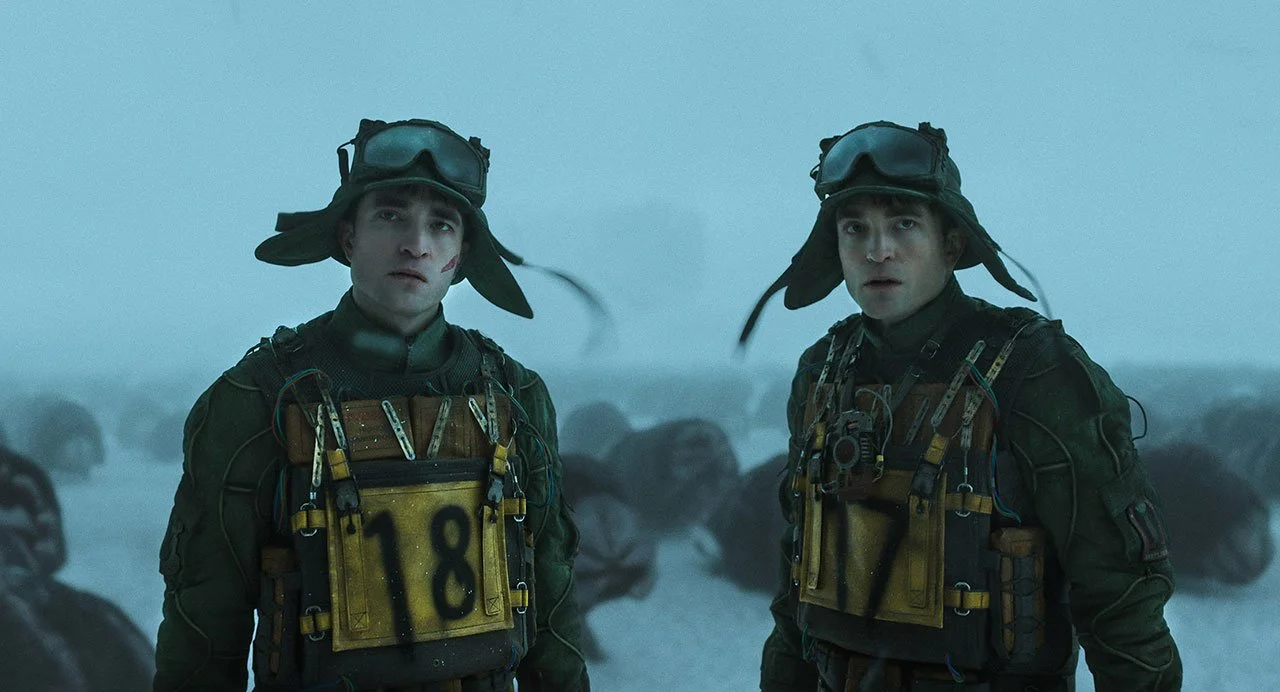Poor Things, or a Poor Excuse for Provocation
The Austrian architect and designer Friedensreich Hundertwasser once stated, perhaps inspired by Antoni Gaudí’s ethos, that “the straight line is a godless line.” For him, the curved, arcing, and branching represented the real world in all its variation and beauty. The straight line was manmade, falsely rational, myopic. Hundertwasser’s perspective was noble—and in his world, subversive. But such a framework doesn’t mean that every curved line is necessarily divine.
Yorgos Lanthimos’ Poor Things is filled with arches and waves. There’s hardly a straight line to be found: even ceilings undulate, floors pillowed in gentle curves. It’s a landscape of Victorian psychedelia. There’s also a God, played by Willem Dafoe, albeit this God(win) is a mad scientist experimenting on cadavers. He lives up to his moniker in both complex and achievement, managing to animate new life by mixing brains (and occasionally entire halves of bodies). For all these signifiers, however, there’s nothing of transcendence in Lanthimos’ film; nor hardly anything human.
Poor Things, based on a novel by Alasdair Gray, depicts the abnormal coming-of-age of Bella Baxter (Emma Stone). Baxter is, first of all, Godwin Baxter’s most successful experiment, created when God found the body of a pregnant woman who had just leapt to her death from a bridge. God implanted the body of the mother with the brain of the infant, and zapped life into this new person; fittingly, there’s something electrical about Bella (and also a little bit Electra-cal). Secondly, Bella is God’s adopted daughter of sorts. He does nurture her, but that includes restraining her from any contact with the outside world.
The body of an adult woman and the brain of a toddler. It’s a setup that lends to absurd chaos, and Stone has glee and curiosity in spades as she smashes dinner plates, twirls in ungainly fashion about their manor, and stumbles out terse phrases that are childish in their frankness. Theirs is a happy life, if in a Grimm sort of manner, but it can’t remain pristine: the trick, as with any child, is that Bella grows up.
Her adult body apparently enables remarkably rapid growth, as Bella adds linguistic dexterity, willful spirit, and a voracious desire for experiences. Sooner or later, of course, she discovers sexual pleasure—on her own terms, at first, but it fuels a lust for sex (or “furious jumping,” as she comes to refer to it). She runs off with the transparent cad of Duncan Wedderburn (who Mark Ruffalo imagines as a rather horny Dick Dastardly type), who proffers pleasure and adventure. For a while he manages to fulfill his promise, but not even he can satiate Bella’s appetite for all that worldly experience has to offer. She eventually discovers stimulation of a more intellectual and philosophical nature, to Wedderburn’s ire.
This is about as far as Poor Things goes in terms of story or character. When Bella ventures out into Lisbon, she claims to find “nothing but sugar and violence,” and what’s true of Lisbon is true of Lanthimos’ film. Narratively, Bella hardly progresses beyond the discovery of lust and the agency to stand up to Wedderburn. Her intellectual awakening is but a short episode before discovering that, by working at a brothel, she can get paid for untiring sex.
The movie is just as obsessed with sex as Bella is, hinging upon repetitive sex scenes. The camera ever inches closer to her body, at least when it’s not flailing in a quickly tiresome fisheye. There are some chuckles to be found throughout, but the script is neither clever nor substantial enough to outweigh its own weariness. The story demands that Bella is finding her way to fullness, but it doesn’t care to imagine what a full, nuanced humanity might be like for her. It just means sex with a dash of independence.
The sex, in itself, is not the problem. The issue isn’t that the film contains too much of anything; instead, what it lacks is gaping. Lanthimos has always been a filmmaker aimed at subversion and transgression, and, at his most successful, his movies pack a bludgeoning power. Dogtooth depicted the devastation wrung out in the lives of adult children imprisoned, like Bella, in the walls of their home. The parents’ lies demanded brutal violence and unearthed troubling sexual experimentation; Dogtooth’s bleak, dystopian comedy veiled an incisive anger. The Lobster was similarly discomforting as it ably prodded at the absurd societal pressures inherent in modern dating and marriage.
Despite its unabashed nudity, Poor Things lacks any subversive punch. Worse still, it stridently believes that it is a work of needed provocation. But Poor Things’ blunt and frequent depiction of sex is no more edgy than an adolescent’s libido—and this juvenile quality extends to its philosophy and social critique. No part of the film reaches beyond a high schooler’s idea of what agency and fulfillment—be it sexual, intellectual, individual, or social—would look like.
Having built a career with intense discomfort and incision, Lanthimos found his work unexpectedly welcomed into Hollywood. Now, with studio and Academy support, he seems to have lost his outsider spirit and his sense of real provocation. Poor Things is what happens when transgression becomes trite.
To pull a line from early in the film, Lanthimos’ Poor Things amounts to “just a butcher’s tray:” a haphazardly arranged display of bodies and hacked ideas, raw and bloodied and packaged for consumption. Call it a grand reach with little to grasp. Call it getting high on his own supply. Call it tedious.
Call it a poor excuse for provocation.



